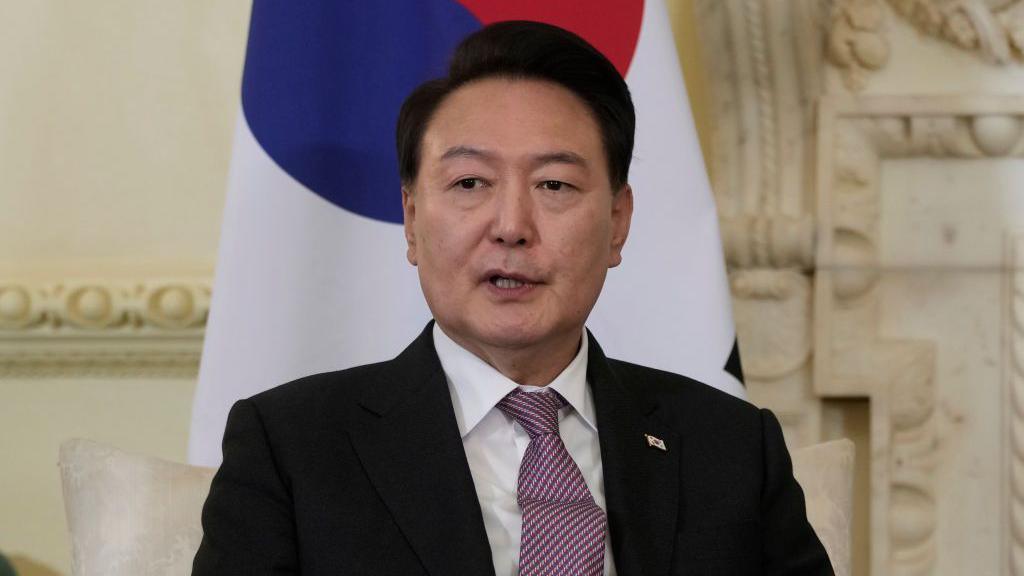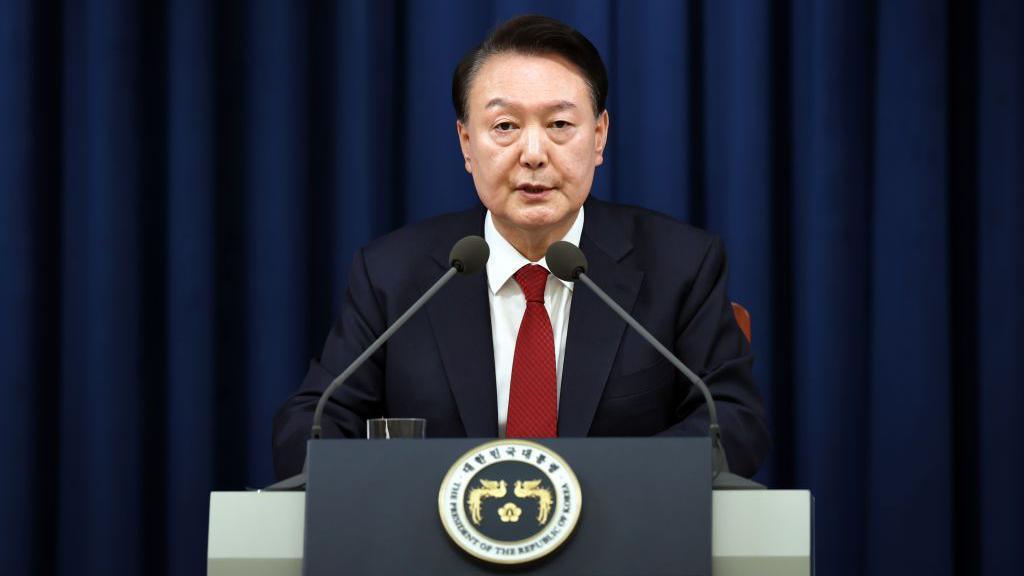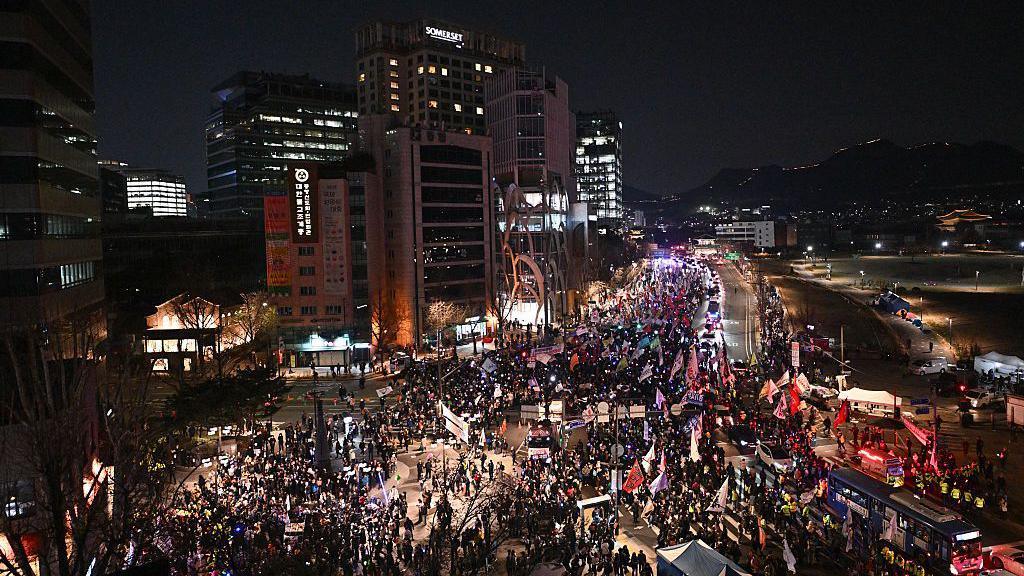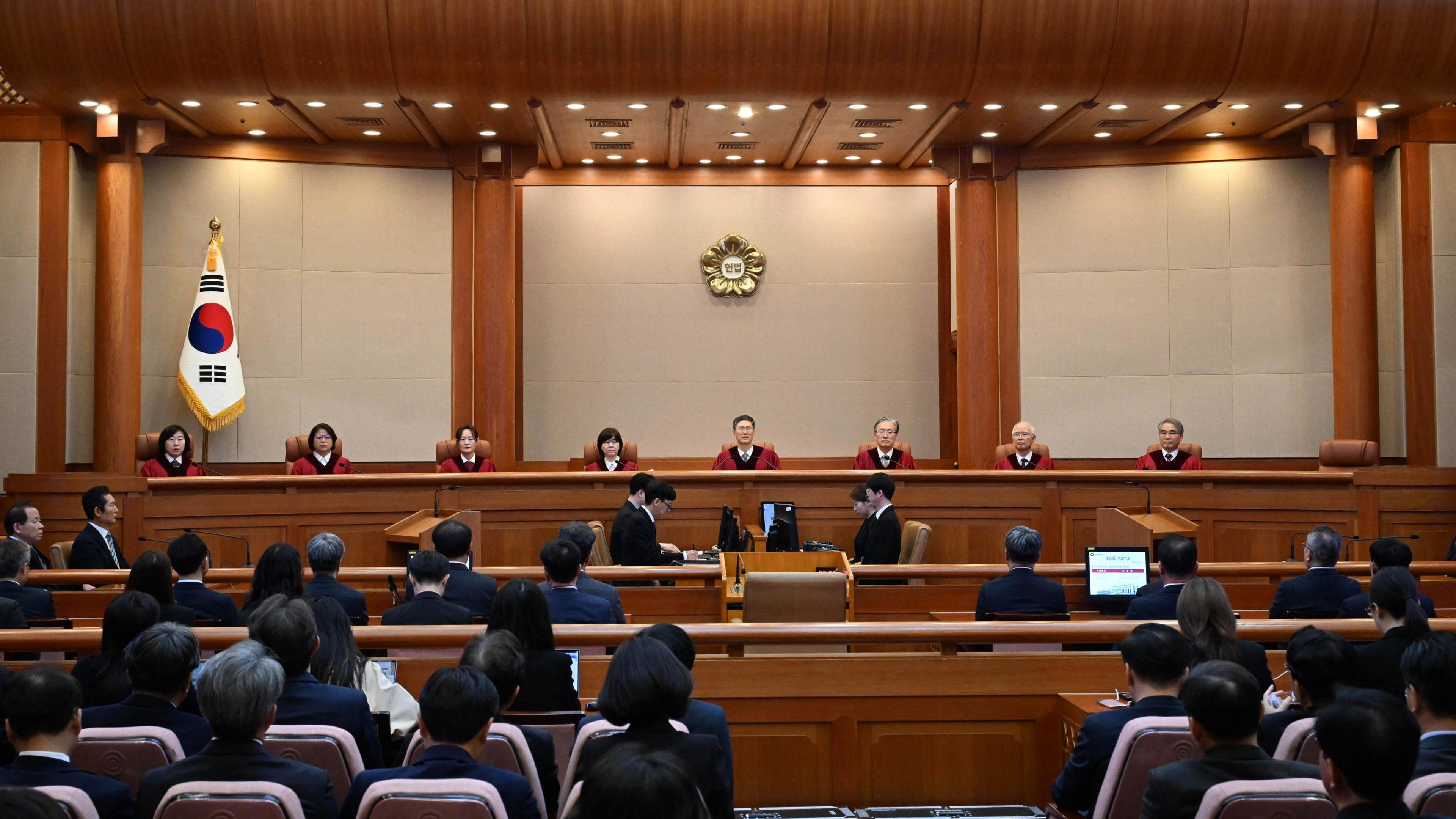Yoon Suk Yeol removed as South Korea's president

- Published
South Korea's president Yoon Suk Yeol has lost his job, after the country's top court voted to support their parliament's decision to suspend him.
It comes after Mr Yoon shocked the country in December last year by announcing martial law.
This means he wanted to run the country in a different way, which challenged the country's democracy.
However, MPs in South Korea disagreed with him and voted to block the move and to impeach him.
New elections will now be held in the country in the next two months in order to find a new president.
Prime Minister Han Duck-soo will stay on as acting president until a new leader is appointed.
More like this
- Published4 December 2024
- Published19 December 2019
- Published15 September 2023
What's happened?

South Korea is a country in East Asia that is known for its democracy in the region - with fair elections, freedom of speech and peaceful transfers of power.
Democracy means 'rule by the people'.
In a democracy, like the UK, people who live there have a say on how they feel about how it is run.
It's important as it not only maintains law and order, but it also provides freedom of speech and helps achieve equality.
That's why it came as a shock when, in a late night TV broadcast in December 2024, Mr Yoon Suk Yeol declared martial law in the Asian democracy for the first time in nearly 50 years.
Martial law means giving the military extra powers and temporary control over running a country.
This is usually reserved for times of emergency, such as during wars or after natural disasters.

Thousands of people took to the streets in Seoul ahead of the court's decision
At the time Mr Yoon said he had no choice but to use martial law in order to protect South Korea from "North Korea's communist forces" and to "eliminate anti-state elements".
However, it soon became clear that was not the case and it had not been caused by threats.
Instead, he was trying to get a grip on power after facing his own political troubles.
The surprise announcement led to thousands of people gathering outside the parliament building in the country's capital, Seoul.
They protested through the night against his decision.
MPs also rushed there to push through an emergency vote to remove the measure.
There were 190 of the 300 members of parliament present for the vote, and every single one voted for martial law to be lifted.
A few hours later, Mr Yoon accepted the parliament's vote and lifted the martial law order.
What happens next?

Many people saw December's events as the biggest challenge to South Korea's democratic society in recent history.
As a result, lawmakers in the country decide to impeach President Yoon as a result of his actions.
South Korea's parliament voted to temporarily remove his powers on 14 December.
However, the final decision lay with the Constitutional Court of Korea.
It has now approved the impeachment, meaning Mr Yoon has been officially removed from his job.
A new election must be held in the country within 60 days to find a new president.
